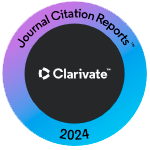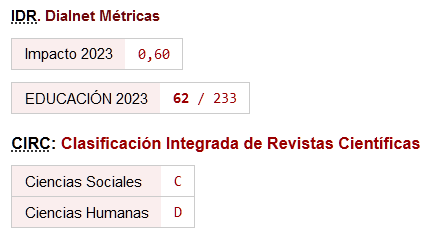Integración de la Inteligencia Artificial (IA) en la Educación Superior Rural Filipina
Perspectivas, desafíos y consideraciones éticas
DOI:
https://doi.org/10.46661/ijeri.10909Palabras clave:
Inteligencia Artificial, Tecnología Educativa, Educación Superior, Educación Rural, consideraciones Éticas, FilipinasResumen
La IA está remodelando rápidamente los panoramas de aprendizaje desde países altamente industrializados hasta aquellos que aún están en desarrollo, como Filipinas. Sin embargo, se han realizado estudios limitados sobre cómo estas herramientas de IA son adoptadas y percibidas por los estudiantes universitarios en un contexto de educación superior no urbano. Este estudio llena ese vacío investigando la adopción, percepciones e implicaciones éticas de las herramientas de IA entre estudiantes universitarios rurales filipinos a través de un enfoque de encuesta transversal de método mixto explicativo secuencial, basándose en 451 estudiantes de una universidad estatal rural en Cebú, Filipinas, de mayo a junio de 2024. Se utilizó IBM SPSS versión 26.0 para realizar los análisis estadísticos, mientras que los análisis temáticos se realizaron utilizando MAXQDA versión 2020. Entre los encuestados, todos habían utilizado herramientas de IA, mientras que la mayor proporción de estos estudiantes (78.54%) utilizó ChatGPT. Además, los estudiantes creían firmemente que la IA era fácil de usar (M = 5.13; DE = ±1.58) y útil en su aprendizaje (M = 5.17; DE = ±1.53). Por el contrario, los estudiantes estaban preocupados por la información incorrecta o sesgada (M=5.35, DE=±1.40), el impacto en el pensamiento crítico (M=5.04, DE=±1.77) y el potencial de hacer trampa (M=5.39, DE=±1.50) al utilizar estas herramientas de IA. Además, solo el 17.29% de los estudiantes conocía las políticas institucionales sobre el uso de la IA. Este estudio indica la necesidad de crear directrices institucionales claras para el uso de la IA, diseñar programas de alfabetización en IA y revisar la suposición sobre la brecha digital en las instituciones de educación superior rurales. Estos hallazgos también tienen implicaciones políticas en vista del desarrollo curricular y la ética para integrar la IA en contextos de educación superior y establecen la necesidad de estrategias educativas que aprovechen los beneficios ofrecidos por la IA mientras cultivan activamente las habilidades de pensamiento crítico y la integridad académica de los estudiantes.
Descargas
Citas
American Psychological Association. (2020). Publication manual of the American Psychological Association (7th ed.). https://doi.org/10.1037/0000165-000
American Psychological Association. (2023, June). How to use ChatGPT as a learning tool. APA Monitor. https://www.apa.org/monitor/2023/06/chatgpt-learning-tool
An, X., Chai, C., Li, Y., Zhou, Y., Shen, X., Zheng, C., & Chen, M. (2023). Modeling English teachers' behavioral intention to use artificial intelligence in middle schools. Education and Information Technologies, 28(5), 5187–5208. https://doi.org/10.1007/s10639-022-11286-z
Asirit, L. B., & Hua, J. H. (2023). Converging perspectives: Assessing AI readiness and utilization in Philippine higher education. Philippine Journal of Science and Research in Technology, 2(3), 152-165. https://doi.org/10.58429/pgjsrt.v2n3a152
Baktash, M. Q., & Aziz, A. A. (2023). Women's knowledge of sexually transmitted diseases in Telafer City, Iraq. Nurse Media Journal of Nursing, 13(1), 12–21. https://doi.org/10.14710/nmjn.v13i1.48924
Barajas, J. R. B., Sangil, M. J. G., Aspra, N. O., Gealone, P. J., Lucero, A. T., Padua, O. M., & Oropesa, R. (2024). Exploratory data analysis of artificial intelligence integration in Philippine engineering programs offered by state universities and colleges: A preliminary assessment. In IEEE Systems and Information Engineering Design Symposium (SIEDS) (pp. 1-6). IEEE. https://doi.org/10.1109/sieds61124.2024.10534634
Bethlehem, J. (2010). Selection bias in web surveys. International Statistical Review, 78(2), 161-188. https://doi.org/10.1111/j.1751-5823.2010.00112.x
Bhattacharya, K., Bhattacharya, A., Bhattacharya, N., Yagnik, V. D., Garg, P., & Kumar, S. (2023). ChatGPT in surgical practice—A new kid on the block. Indian Journal of Surgery.85, 1346-1349. https://doi.org/10.1007/s12262-023-03727-x
Biswas, S. (2023). ChatGPT and the future of medical writing. Radiology, 307(2), Article e223312. https://doi.org/10.1148/radiol.223312
Brandon, N. O., Simon, J., Baguio, I. E., Bardago, K. M. W., Granado, L. B., Loreco, K. C. A., Matugas, L. P., Talaboc, D. J., Zayas, R. K. D. D., Caballo, J. H. S., & Caangay, R. B. R. (2023). The mediating effect of AI trust on AI self-efficacy and attitude toward AI of college students. International Journal of Management, 2(1), 2286. https://doi.org/10.54536/ijm.v2i1.2286
Cai, S., Shu, Y., Li, M., & Wang, X. (2022). Artificial intelligence education for K-12 in the AI era: A systematic review and future directions. Frontiers in Psychology, 13, Article 818805. https://doi.org/10.3389/fpsyg.2022.818805
Celik, I. (2023). Towards Intelligent-TPACK: An empirical study on teachers' professional knowledge to ethically integrate artificial intelligence (AI)-based tools into education. Computers in Human Behavior, 138, Article 107468. https://doi.org/10.1016/j.chb.2022.107468
Chan, C. K. Y., & Lee, K. K. W. (2023). The AI generation gap: Are Gen Z students more interested in adopting generative AI such as ChatGPT in teaching and learning than their Gen X and Millennial generation teachers? Smart Learning Environments,10, 60. https://doi.org/10.1186/s40561-023-00269-3
Chan, C. K. Y., & Hu, W. (2023). Students' voices on generative AI: Perceptions, benefits, and challenges in higher education. International Journal of Educational Technology in Higher Education, 20(1), Article 43. https://doi.org/10.1186/s41239-023-00411-8
Crompton, H., & Burke, D. (2023). Artificial intelligence in higher education: The state of the field. International Journal of Educational Technology in Higher Education, 20(1), Article 22. https://doi.org/10.1186/s41239-023-00392-8
Dahmash, A., Alabdulkareem, M., Alfutais, A., Kamel, A. M., Alkholaiwi, F., Alshehri, S., Al Zahrani, Y., & Almoaiqel, M. (2020). Artificial intelligence in radiology: Does it impact medical students preference for radiology as their future career? BJR|Open, 2(1), Article 20200037. https://doi.org/10.1259/bjro.20200037
Das, A., Malaviya, S., & Singh, M. (2023). The impact of AI-driven personalization on learners' performance. International Journal of Computer Sciences and Engineering, 11, 15–22. https://doi.org/10.26438/ijcse/v11i8.1522
Duan, Y., Edwards, J. S., & Dwivedi, Y. K. (2023). Artificial intelligence for decision making in the era of Big Data – evolution, challenges and research agenda. International Journal of Information Management, 48, 63-71. https://doi.org/10.1016/j.ijinfomgt.2019.01.021
Edmonds, W. A., & Kennedy, T. D. (2017). An applied guide to research designs: Quantitative, qualitative, and mixed methods. Sage Publications. https://doi.org/10.4135/9781071802779
Estrellado, C. J. P., & Miranda, J. C. (2023). Artificial intelligence in the Philippine educational context: Circumspection and future inquiries. International Journal of Scientific and Research Publications, 13(5), 704-715. https://doi.org/10.29322/ijsrp.13.05.2023.p13704
Etikan, I., Musa, S. A., & Alkassim, R. S. (2016). Comparison of convenience sampling and purposive sampling. American Journal of Theoretical and Applied Statistics, 5(1), 1-4. https://doi.org/10.11648/j.ajtas.20160501.11
Firoozabadi, S., Ahmadi, F., Dai, T., & Gruson, M. (2023, June 14). Navigating the use of ChatGPT in education and research: Impacts and guidelines. OR/MS Tomorrow. https://www.informs.org/Publications/OR-MS-Tomorrow/Navigating-the-Use-of-ChatGPT-in-Education-and-Research-Impacts-and-Guidelines
Fricker, R. D. (2008). Sampling methods for web and email surveys. In N. Fielding, R. M. Lee, & G. Blank (Eds.), the SAGE handbook of online research methods (pp. 195-216). SAGE Publications. https://doi.org/10.4135/9780857020055.n11
Gao, Y., Wei, Z., & Li, X. (2022). Artificial intelligence in STEM education: A systematic review. Education and Information Technologies, 27(6), 8039-8074. https://doi.org/10.1007/s10639-022-11001-y
Gayed, J. M., Carlon, M. K. J., Oriola, A. M., & Santillan-Cross, J. (2022). Exploring an AI-based writing assistant's impact on English language learners. Computers and Education: Artificial Intelligence, 3, Article 100055. https://doi.org/10.1016/j.caeai.2022.100055
Greenacre, Z. A. (2016). The importance of selection bias in internet surveys. Open Journal of Statistics, 6(3), 397-404. https://doi.org/10.4236/ojs.2016.63035
Harrer, S. (2023). Attention is not all you need: The complicated case of ethically using large language models in healthcare and medicine. eBioMedicine, 90, Article 104512. https://doi.org/10.1016/j.ebiom.2023.104512
Holmes, W., Bialik, M., & Fadel, C. (2022). Artificial intelligence in education: Promises and implications for teaching and learning. Center for Curriculum Redesign. https://doi.org/10.58863/20.500.12424/4276068
IBM Corp. (2019). IBM SPSS Statistics for Windows (Version 26.0) [Computer software]. IBM Corp.
Jingdong, X. (2023). Students' cognition of artificial intelligence in education. Applied and Computational Engineering, 22(12), 1818. https://doi.org/10.54254/2755-2721/22/20231218
Khanduri, V., & Teotia, A. (2023). Revolutionizing learning: An exploratory study on the impact of technology-enhanced learning using digital learning platforms and AI tools on the study habits of university students through focus group discussions. International Journal of Research Publication and Reviews, 4(6), 663–672. https://doi.org/10.55248/gengpi.4.623.44407
Kitamura, F. C. (2023). ChatGPT is shaping the future of medical writing but still requires human judgment. Radiology, 307(2), Article e230171. https://doi.org/10.1148/radiol.230171
Kumar, A. (2023). Analysis of ChatGPT tool to assess the potential of its utility for academic writing in biomedical domain. Biology, Engineering, Medicine and Science Reports, 9(1), 24-30. https://doi.org/10.5530/bems.9.1.5
Lee, Y. F., Hwang, G. J., & Chen, P. Y. (2022). Impacts of an AI-based chatbot on college students' after-class review, academic performance, self-efficacy, learning attitude, and motivation. Educational Technology Research and Development, 70(5), 1843–1865. https://doi.org/10.1007/s11423-022-10142-8
Limna, P., Kraiwanit, T., Jangjarat, K., Klayklung, P., & Chocksathaporn, P. (2023). The use of ChatGPT in the digital era: Perspectives on chatbot implementation. Journal of Applied Learning & Teaching, 6(1). https://doi.org/10.37074/jalt.2023.6.1.32
Lubowitz, J. H. (2023). ChatGPT, an artificial intelligence chatbot, is impacting medical literature. Arthroscopy: The Journal of Arthroscopic & Related Surgery, 39(5), 1121–1122. https://doi.org/10.1016/j.arthro.2023.01.015
Maerten, A. S., & Soydaner, D. (2023). From paintbrush to pixel: A review of deep neural networks in AI-generated art. arXiv. https://doi.org/10.48550/ARXIV.2302.10913
Martin, J. G. (2024). Perceptions of higher education faculty regarding the use of Chat Generative Pre-Trained Transformer (ChatGPT) in education. International Journal on Open and Distance e-Learning, 9(2), 249-265. https://doi.org/10.58887/ijodel.v9i2.249
Masutani, F. (2023, April 16). Survey: 32.4% of college students in Japan say they use ChatGPT. The Asahi Shimbun. https://www.asahi.com/ajw/articles/14927968
Metzler, K. (2022, December 7). How ChatGPT could transform higher education. Social Science Space. https://www.socialsciencespace.com/2022/12/how-chatgpt-could-transform-higher-education/
Mizumoto, A., & Eguchi, M. (2023). Exploring the potential of using an AI language model for automated essay scoring. SSRN. https://doi.org/10.2139/ssrn.4373111
Montenegro-Rueda, M., Fernández-Cerero, J., Fernández-Batanero, J. M., & López-Meneses, E. (2023). Impact of the implementation of ChatGPT in education: A systematic review. Computers, 12(8), Article 153. https://doi.org/10.3390/computers12080153
Neuroscience News. (2023, August 24). Can ChatGPT rival university students in academic performance? https://neurosciencenews.com/chatgt-student-writing-23821/
O'Sullivan, P., Forgette, C., Monroe, S., & England, M. (2020). Student perceptions of the effectiveness of adaptive courseware for learning. Current Issues in Emerging eLearning, 7(1), Article 5. https://scholarworks.umb.edu/ciee/vol7/iss1/5
Pantelimon, F. V., Bologa, R., Toma, A., & Posedaru, B. Ș. (2021). The evolution of AI-driven educational systems during the COVID-19 pandemic. Sustainability, 13(23), Article 13501. https://doi.org/10.3390/su132313501
Philippine Council for Health Research and Development. (2017). Ethical guidelines for health research in the Philippines. Philippine Council for Health Research and Development.
Pittalwala, I. (2023, January 24). Is ChatGPT a threat to education? UC Riverside News. https://news.ucr.edu/articles/2023/01/24/chatgpt-threat-education
Polit, D. F., & Beck, C. T. (2021). Nursing research: Generating and assessing evidence for nursing practice (11th ed.). Wolters Kluwer.
Qasem, F. (2023). ChatGPT in scientific and academic research: Future fears and reassurances. Library Hi Tech News, 40(3), 30–32. https://doi.org/10.1108/LHTN-03-2023-0043
Rahmat, T., Bau, R. L., Hermila, A., Farman, I., Hidayat, L. M., & Salim, S. (2023). AI perspectives in education: A BERT-based exploration of informatics students' attitudes to ChatGPT. In International Conference on Electrical Technology (ICET), (pp. 1-6). IEEE. https://doi.org/10.1109/icet59790.2023.10435040
Saadatzi, M. N., Kuhns, M. P., & Paladino, P. (2022). Impacts of generative AI on higher education: A comprehensive review. Education and Information Technologies, 27(6), 8303-8332. https://doi.org/10.1007/s10639-022-11139-9
Sterba, S. K., & Foster, E. M. (2008). Self-selected sample. In P. J. Lavrakas (Ed.), Encyclopedia of survey research methods (pp. 806-808). Sage Publications.
Taber, K. S. (2018). The use of Cronbach's alpha when developing and reporting research instruments in science education. Research in Science Education, 48(6), 1273–1296. https://doi.org/10.1007/s11165-016-9602-2
Tanvir, K., Islam, M. S., Sezan, S. M. B., Sanad, Z. T. A., & Rahman, A. J. M. A. (2023). Impact of ChatGPT on academic performance among Bangladeshi undergraduate students. International Journal of Research In Science & Engineering, 35, 18–28. https://doi.org/10.55529/ijrise.35.18.28
VERBI Software. (2019). MAXQDA 2020 [Computer software]. https://www.verbi.com/maxqda-software/
Villaceran, R., Rioflorido, J., & Paguiligan, D. (2024). Initial development and validation of a questionnaire for students' artificial intelligence knowledge in education. Cognizance Journal, 4(5), 3-15. https://doi.org/10.47760/cognizance.2024.v04i05.003
Villarino, R. T. (2024). Conceptualization and preliminary testing of the Research Instrument Validation Framework (RIVF) for quantitative research in education, psychology, and social sciences: A modified Delphi method approach. SSRN. https://doi.org/10.2139/ssrn.4894476
Villarino, R. T. H., Villarino, M. L. F., Temblor, M. C. L., Chabit, N. T., Arcay, C. A. L., Gimena, G. B., Bernard, P., & Plaisent, M. (2022a). Evaluating an online well-being program for college students during the COVID-19 pandemic. Journal of Health Sciences, 12(1), 74-82 https://doi.org/10.17532/jhsci.2022.1631
Villarino, R. T., Villarino, M. L., Temblor, M. C., Bernard, P., & Plaisent, M. (2022b). Association between physical health and well-being: A quasi-experimental study. Journal of Liaquat University of Medical & Health Sciences, 21(3). https://doi.org/10.22442/jlumhs.2022.00948
Villarino, R. T., Villarino, M. L., Temblor, M. C., Bernard, P., & Plaisent, M. (2023a). Effectiveness of an online health and well-being program on physical activity, nutrition, and sleep in college students. Health Education and Health Promotion, 11(1), 29–36. https://doi.org/10.58209/hehp.11.1.29
Villarino, R. T., Villarino, M. L., Temblor, M. C., Bernard, P., & Plaisent, M. (2023b). Correlating demographics and well-being among rural college students in the Philippines. Nurse Media Journal of Nursing, 13(1), 22–30. https://doi.org/10.14710/nmjn.v13i1.49036
Welding, S. (2023, June 15). Half of college students say using AI is cheating. BestColleges. https://www.bestcolleges.com/research/college-students-ai-tools-survey/
Whitelock-Wainwright, A., Tsai, Y. S., Lyons, K., Kaliff, S., Bryant, M., Ryan, K., & Gašević, D. (2023). Exploratory study of the current landscape of learning analytics in UK higher education. Higher Education, 85(1), 125-146. https://doi.org/10.1007/s10734-022-00811-1
Xue, Z., Zhang, J., & Chan, C. (2024). Unveiling students' experiences and perceptions of artificial intelligence usage in higher education. Journal of University Teaching and Learning Practice, 21 (6). https://doi.org/10.53761/xzjprb23
Young-Suk, L., & Shim, T. (2024). A study on the application of university students' perception of generative AI. Korean Journal of Research in Education, 30(8), 95-112. https://doi.org/10.58601/kjre.2024.03.30.08
Zawacki-Richter, O., Marín, V. I., Bond, M., & Gouverneur, F. (2019). Systematic review of research on artificial intelligence applications in higher education – where are the educators? International Journal of Educational Technology in Higher Education, 16(1), Article 39. https://doi.org/10.1186/s41239-019-0171-0
Zekaj, R. (2023). AI language models as educational allies: Enhancing instructional support in higher education. International Journal of Learning, Teaching and Educational Research, 22(8), 120–134. https://doi.org/10.26803/ijlter.22.8.7
Zhai, X., Chu, X., Chai, C. S., Jong, M. S. Y., Istenic, A., Spector, J. M., Liu, J.-B., Yuan, J., & Li, Y. (2021). A review of artificial intelligence (AI) in education from 2010 to 2020. Complexity, Vol 2021, 1-18. Article 8812542. https://doi.org/10.1155/2021/8812542
Descargas
Publicado
Cómo citar
Número
Sección
Licencia
Derechos de autor 2024 RESTI TITO VILLARINO

Esta obra está bajo una licencia internacional Creative Commons Atribución-NoComercial-SinDerivadas 4.0.











